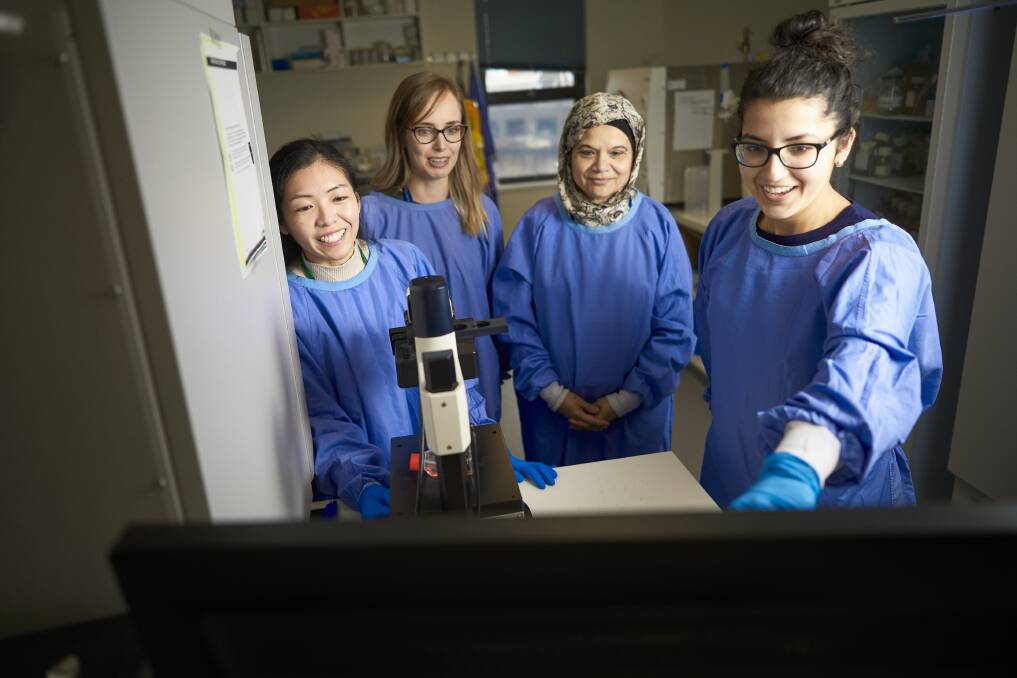
OVARIAN cancer researchers in Ballarat have unlocked a potential new way to tackle the silent killer in the face of chemotherapy resistance.
Subscribe now for unlimited access.
or signup to continue reading
Professor Nuzhat Ahmed and her team at Fiona Elsey Cancer Research Institute have successfully found an inhibitor to block ovarian cancer cell growth in mice models.
Ovarian cancer has a poor treatment record and, despite many patients initially responding well to chemotherapy, most patients relapse with almost 60 per cent dying within five years.
Patients tend to develop a chemo-resistant strain of cancer and FECRI has been focused on determining the differences between responsive and non-responsive ovarian cancer protein cells.
Professor Ahmed said the aim was about more than extending life.
“If we can do it, even for six months, this is not just about dying but improving quality of life in that time,” Professor Ahmed said.
- READ MORE: Tackling a silent killer
Their work has been published in international peer-review medical journal Oncotarget but there is still a long road ahead.
Professor Nuzhat said for the next steps are in getting drug companies involved, particularly in cost, and also to ensure the drug becomes approved by the Therapeutic Goods Administration.
Otherwise, the team must find an alternative inhibitor and although Professor Ahmed has one in mind, this would mean the testing process starts again.
This is the first study to show potential use of a readily available oral inhibitor in treating chemo-resistant ovarian cancer. This drug is already used in treating a form of leukaemia.
Professor Ahmed said there had been little improvement in treating ovarian cancer the past 40 years compared to other cancers.
“So much money has gone into research cancers like breast cancer but not so much in ovarian cancer,” Professor Ahmed said. “There is a lot of consumer interest there, a lot of lobbying, but I’ve always questioned why – ovarian cancer is such a deadly disease.”
About 1400 Australian women are diagnosed with ovarian cancer each year and every 11 hours an Australian woman dies with the disease.
FECRI’s latest research has been conducted as part of the institute’s collaborative program with researchers from the Hudson Institute, Walter and Eliza Hall Institute and the Melbourne University.
The FECRI team is also researching use of antibodies in ovarian cancer treatments.
Professor Ahmed said support for FECRI’s work was so important and the institute was fortunate to have such strong community backing in their work.
FECRI has nine PhD students from Federation University and 10 senior scientific staff.
RELATED COVERAGE














